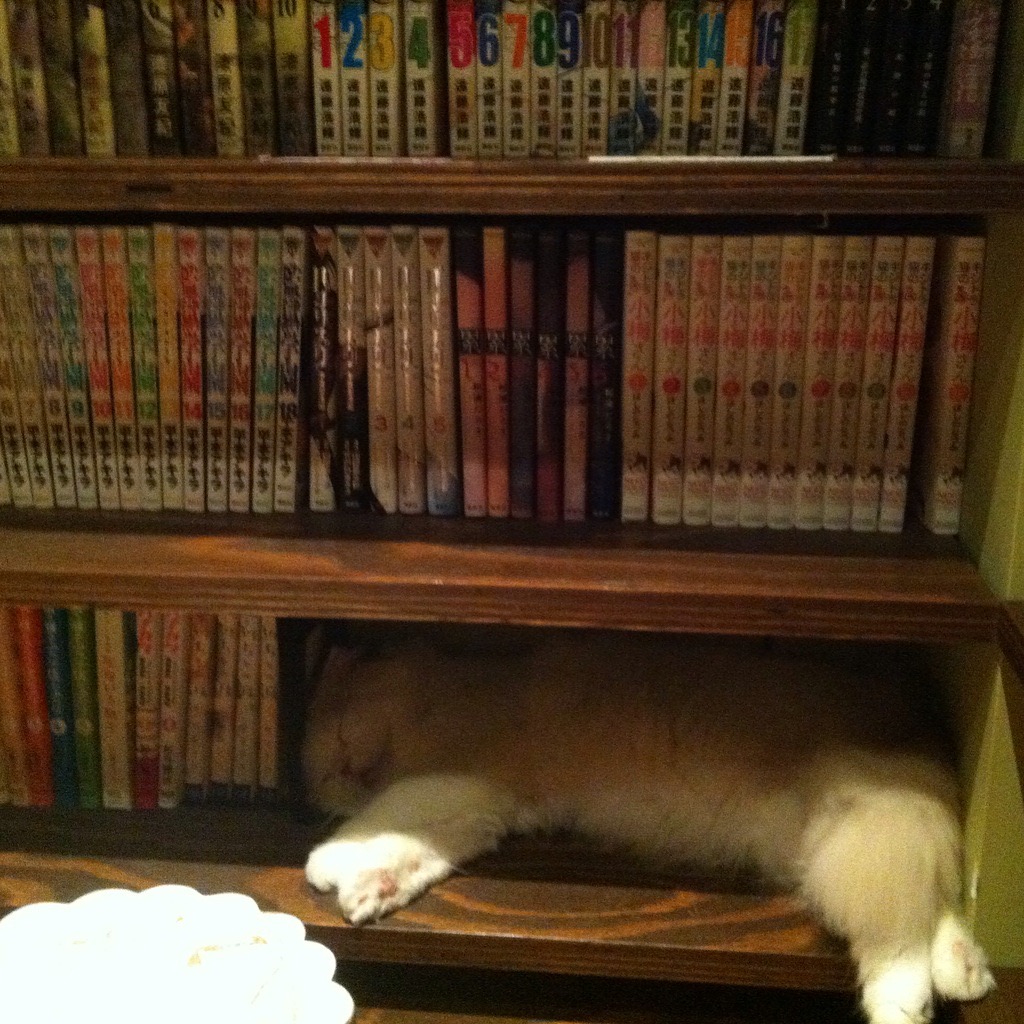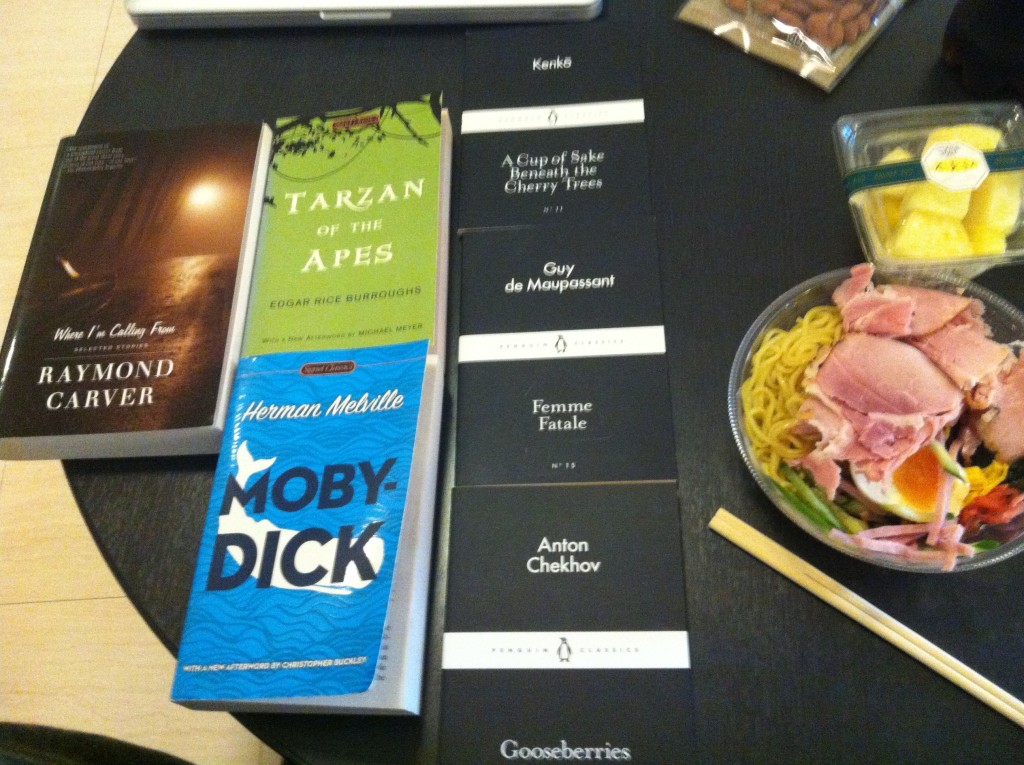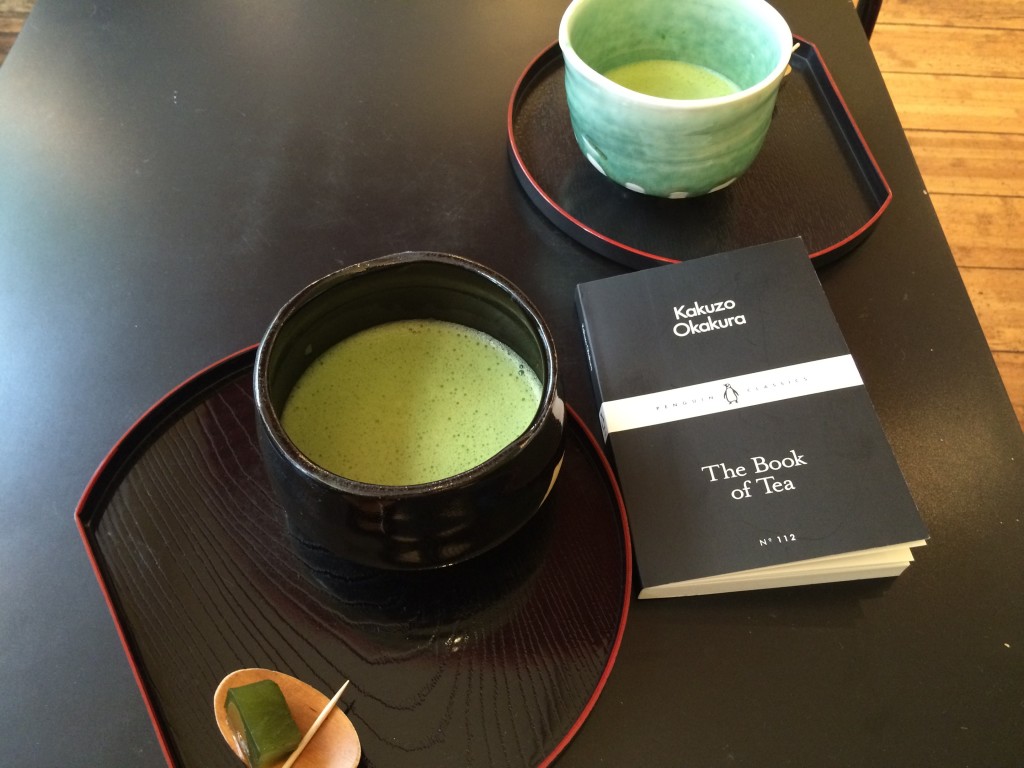I’ve found that most people who want to broaden their reading horizons are already very well-read. It’s definitely something that’s on my mind a lot. I want to sample everything. How can I be more creative? How can I have access to new models of thinking? How can I learn new things and push the boundaries my comfort zone? This list might just be the answer.
The next person that asks me how to become more well-read is getting a link to this article and a homework assignment: pick one and do it this weekend. That includes myself.
1. Read a story in its true serial form
I LOVE this one.
I got this from my English tutor at Oxford. He told me how he was reading The Turn of the Screw as it was intended to be received.
The Turn of the Screw, like many of its 19th century compadres, was released bit by bit, chapter by chapter. And it was designed to keep you in suspense until the next instalment a week or a month later.
My tutor read it this way. Instead of swallowing it whole, he took an instalment to bed each night and forced himself to stop right when it got juicy, a feat that is almost impossible in our binge-watching culture.
Reading a book this way makes it a part of your life in a way that we’ve basically forgotten. It’s like an enveloping background noise that follows us wherever we go and begs to know what happens next.
If you want to try this experiment yourself and you’re weak-willed, I recommend this awesome free app:
I did this technique with one of my favourite books, Great Expectations, and it was definitely rewarding.
Here are my recommendations for what to read in serial form:
- The Green Mile – Stephen King
- Great Expectations – Charles Dickens
- The Turn of the Screw – Henry James
- The Three Musketeers – Alexandre Dumas
2. Read a graphic novel or manga
This is a whole art form in its own right.
If you’ve never read a graphic novel before, you might wonder how doing so will expand your literary horizons. After all, they’re just comics right? Uh, wrong!
They have their own generic conventions, their own limitations, their own peculiarities, and they can handle stories in ways that novels often cannot. It might be too simplistic and reductionist to say they bridge the gap between novels and paintings but that’s all I got. Plus a lot of them are damn gorgeous to look at.
Here are my top suggestions (I envy you if it’s the first time you’re reading these):
3. Read a book of poems (not an anthology)
I love poem anthologies. I’m dipping into two at the moment as part of the Bradbury Trio. But for this assignment, it’s best to grab a book of poems that was originally published as a standalone by one author.
Why? Because it’s something a lot of people don’t do. And the people who do it, don’t do enough of it (unless you’re reading English at Oxford but that doesn’t count).
A book of poems by one author is a real treat. You can completely fall in love with another human’s words and appreciate how they render their life experiences, thoughts, hopes, dreams, and ambitions.
Here are my top recommendations:
- Ariel – Sylvia Plath
- Leaves of Grass – Walt Whitman
- The Whitsun Weddings – Philip Larkin
- Howl, and Other Poems – Allen Ginsberg
- A Coney Island of the Mind – Lawrence Ferlinghetti
Bonus points if you read the poems aloud. More bonus points if you listen to recordings of them too.
4. Read a terrifying horror novel (at night, under the blankets)
There’s nothing quite like settling into bed, dimming the lights, and scaring yourself silly.
If you’re particularly horror-averse, this suggestion might just reveal a few things about what really affects you (and what doesn’t).
These are my favourite screamers:
- Dracula – Bram Stoker
- The Shining – Stephen King
- The Exorcist – William Peter Blatty
5. Read a massive classic
The same teacher that told me to read books in their serial form, also tried to get a bunch of us reading Moby Dick by explaining it could be done easily by reading a chapter a day.
So I did it. And for the price of one chapter a day, I got to experience one of the greatest big works of literature ever written. I experienced a book that many people want to read but continuously put off (War & Peace is another). And it only took four months.
I totally recommend you read the first few chapters of Moby Dick this weekend.
If you want a real treat, pair it with the celebrity recordings from the Moby Dick Big Read. Chapter 1 is beautifully read by Tilda Swinton.
Other massive classics that will give you boasting rights are:
6. Read a play, act it out, then see it
This is a great way to get to know one play really intimately.
You can do this over a weekend and by Monday you’ll be able to quote whole pieces.
You should also think about how you would direct your own version of the play.
Some plays I have done this with:
- Speed-the-Plow (saw Kevin Spacey in this)
- Julius Caesar (saw Paterson Joseph in this)
- King Lear (saw Pete Postlethwaite in this)
- Henry V (saw Jude Law in this)
I’m totally bragging about the stars I saw on stage but, give me a break, I’m a theatre geek.
Bonus points if you can get a friend to help you act out a play. If you have kids, this is a great way to get them reading more and interested in the theatre.
7. Read a science fiction novel
It took me a while to get into science fiction literature. But when I did, I took to the form in a massive way.
There’s no other literary form that tickles my brain quite like science fiction.
I find after I binge science fiction, my brain is bulging with ideas.
Here are some of my favourites to get you started:
- Do Androids Dream of Electric Sheep? – Philip K. Dick
- Ender’s Game – Orson Scott Card
- Fahrenheit 451 – Ray Bradbury
8. Read a book and then watch the film version right after
I love figuring out the creative decisions that were made during a story’s transition from book to form. It can really teach you a ton about how to preserve (or not) the integrity of a story.
Here’s one book I read recently and then watched the film:
- Silver Lining’s Playbook – Matthew Quick
The novel and film are both excellent but quite different.
9. The Bradbury Trio
You can read about the Bradbury Trio in depth here:
The basic premise is this:
Every night before you go to sleep (for the next 1,000 nights), read 1 short story, 1 poem, and 1 essay.
You can try a mini version of this, Bradbury Trio Lite, by doing this for three nights over the weekend. See how you like it. I bet you’ll feel more creative by the end of it.
10. The Nobel Prize Book Challenge
How many Nobel Prize winners’ works have you read?
If you’re anything like me a year ago, the answer is ‘not many’.
I decided to fix that at the beginning of 2016 and read a Nobel Prize laureate’s work each month.
It’s been incredibly rewarding and I’ve accessed new ways of thinking that would have otherwise been cut off to me. I also found one of my new favourite writers, Svetlana Alexievich.
You can read more about this (and see my list month-by-month) here:
11. Read a romance novel
This is another genre that I had little experience with just a few years ago.
However, since making a conscious choice to change that, romance has fast become one of my favourite genres. I’ve since devoured the genre like a love-mad marauder plundering for gold in different lands.
Here are a few I’ve enjoyed recently:
- Frederica – Georgette Heyer
- The Fault in Our Stars – John Green
- Hotel on the Corner of Bitter and Sweet – Jamie Ford
12. Read a short story collection
Either pick one author or grab an anthology.
Short stories are great. They can teach you so much about precision and how to tell a story in a tight space. I read one every single day (thanks, Bradbury) and advise all budding authors to do the same.
Here are a few I’ve enjoyed recently:
- Fifty Great Short Stories
- Will You Please Be Quiet, Please – Raymond Carver
- That Glimpse of Truth: The 100 Finest Short Stories Ever Written – David Miller (ed.)
13. Read a book from a country you’ve never visited
If you can’t afford a plane ticket, you can surely hustle up some cash to afford a book that will take you to another land and introduce you to new people and new ways of thinking.
Here are some recommendations to get you started:
- Voices from Chernobyl – Svetlana Alexievich (Belarus)
- The Kite Runner – Khaled Hosseini (Afghanistan)
- Six Four – Hideo Yokoyama (Japan)
- The Door – Magda Szabo (Hungary)
14. Read a biography… chosen by someone else
Okay, this might be a bad idea.
Only do this if your friends aren’t dicks and deliberately tell you to read this.
When you read the biography of great men and women, it’s almost as if you become them for a short while. You get to understand what made them tick (or at least try) and what their lives can teach you about the best way to live your own.
Here are some recommendations:
- The Rise and Fall of Theodore Roosevelt – Edmund Morris
- The Life of Alexander the Great – Plutarch
- The Diary of a Young Girl – Anne Frank
- Wild Swans – Jung Chang
15. Read a banned book
Some of the best books ever written have been censored… for being too freaking awesome.
Stick it to the man and find out what all the fuss was about.
Here are my recommendations (just don’t tell anyone):
- American Psycho – Bret Easton Ellis
- To Kill A Mockingbird – Harper Lee
- Slaughterhouse-Five – Kurt Vonnegut
16. Read a self-published work
Show us guys some support. There’s some great stuff on the self-publishing frontier. In fact, much of it’s better than the “traditionally published” stuff propping up the shelves at your local dying mom-and-pop bookstore.
What gems do we have in the self-published box?
- Wool – Hugh Howey
- Choose Yourself! – James Altucher
- Yesterday’s Gone – Sean Platt and David Wright
17. Read 3 magazines on unfamiliar areas
Magazines are a totally underrated way to absorb new information. Whenever I travel, I like to pick up 3 new magazines, each one on areas I don’t know enough about.
Here are the 3 I chose last time:
- National Geographic
- Scientific American
- WIRED
18. Read some acclaimed non-fiction
I find that the best way to get a surge of creativity as a fiction writer is to read heaps of non-fiction.
It works the other way too. Non-fiction writers should have a stack of fiction on their bedside table.
Here’s my list of recommendations for non-fiction stuff I’ve enjoyed recently:
- Hiroshima – John Hersey
- In Cold Blood – Truman Capote
- Zinky Boys – Svetlana Alexievich
Have a great weekend!
Pick one of those assignments next time you have a quiet weekend and you’ll have broadened your literary horizons by Monday morning!


